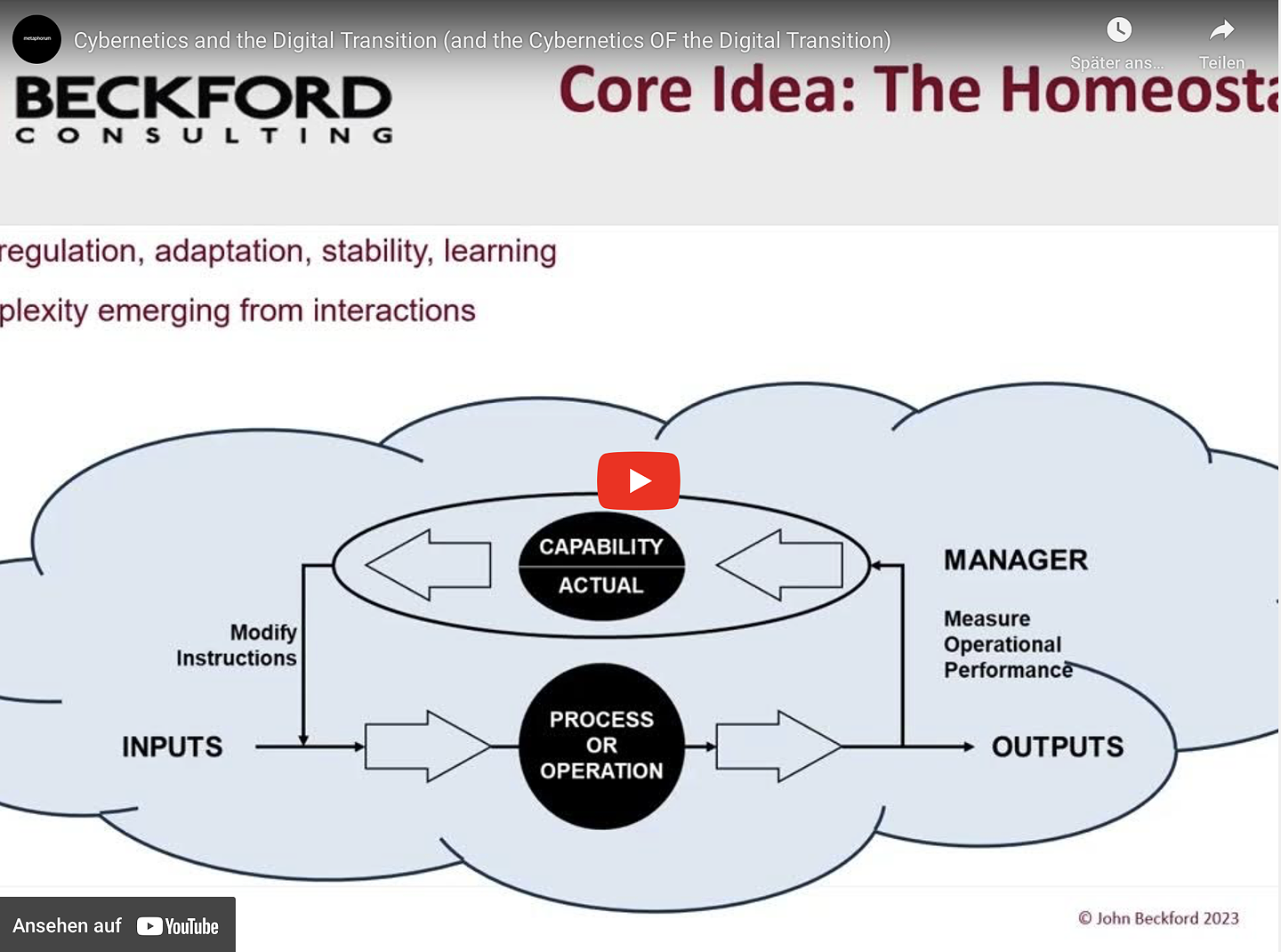
(and the Cybernetics OF the Digital Transition)
Organisations that seek to survive and thrive need to address the substantial challenges of recognising and capturing the value of digital capabilities. Cybernetics, especially as applied to organisations, offers insights and capabilities that enable and accelerate the realisation of digital potential tackling the challenge in the three dimensions of purpose, people and process. Through insights, examples and case studies, John shows how he applies the ideas in research, development, and application.
If the process of transition is to be successful it needs to be, itself, cybernetic- goal seeking, adaptive, learning, reflexive. Thus, we go one to the exploration of “the cybernetics of the cybernetics”, a recognition of the allostatic nature of a viable organisation. If stability is an emergent property of a dynamical system, the transition to exploitation of digital capability must be complemented by a transition to adaptiveness as the basis of organisation.
Speaker Bio
Professor John Beckford PhD MMS FCybS FRSA FIET is a partner in Beckford Consulting, Visiting Professor in the De partment of Civil, Environmental and Geomatic Engineering at University College London and in the Centre for Information Management at Loughborough University. He is Non-Executive Chair of both RISE Mutual CIC and Corehaus Limited and a Non-Executive Director of Fusion21 Limited, all social enterprises. John is President of the Cybernetics Society, holds a PhD in Management Systems and Sciences (Hull), is a Fellow of the Cybernetics Society, a Member of The Institute of Management Services, a Fellow of the Royal Society for the Arts and a Fellow of the Institute of Engineering and Technology.
John is author of: ‘Quality Management: Reconsidered for the Digital Economy’ (Routledge, 5th Edition, 2022), ‘The Intelligent Organisation’ (Routledge, 2nd Edition, 2020), ‘The Intelligent Nation’ (Routledge, 2021) and numerous reports, papers and articles.
John has been applying his knowledge of stakeholder engaged, information led adaptive organisation design, learning and transformation internationally for over thirty years across many organisations in the commercial, public and 3rd sectors.
John is currently developing a radical new model for the weather resilience strategy for Network Rail.
Further information about John can be found at: www.beckfordconsulting.com
Twitter: @johnbeckford email: john.beckford@beckfordconsulting.com
